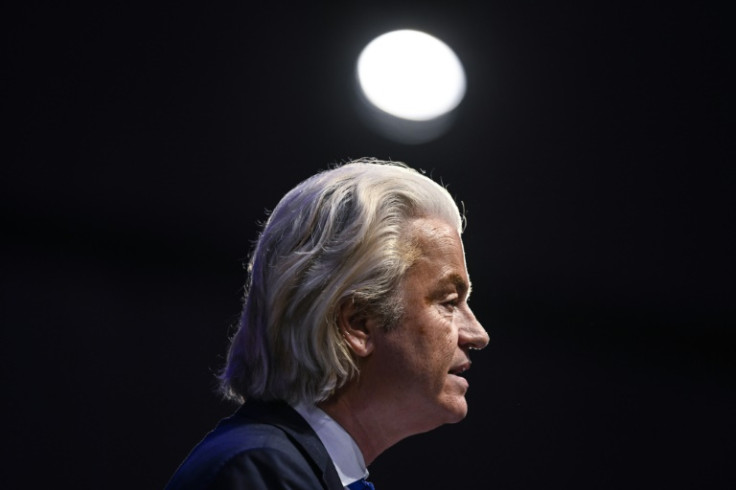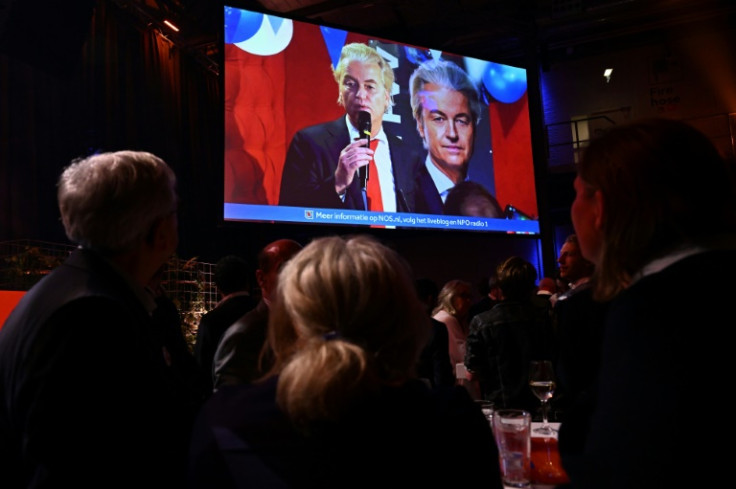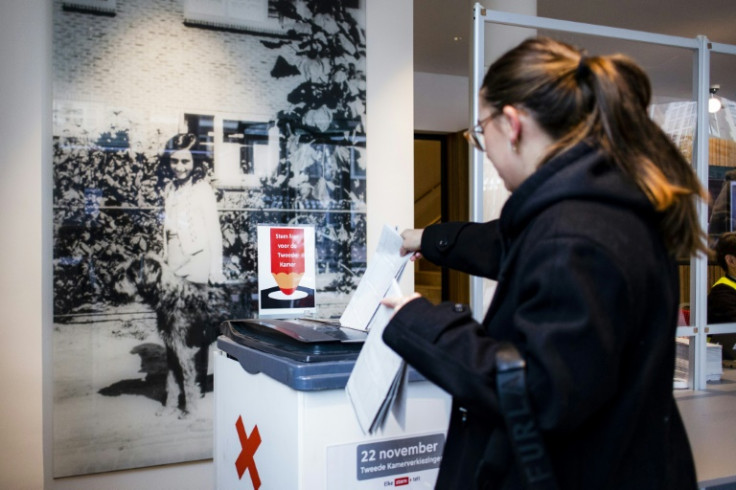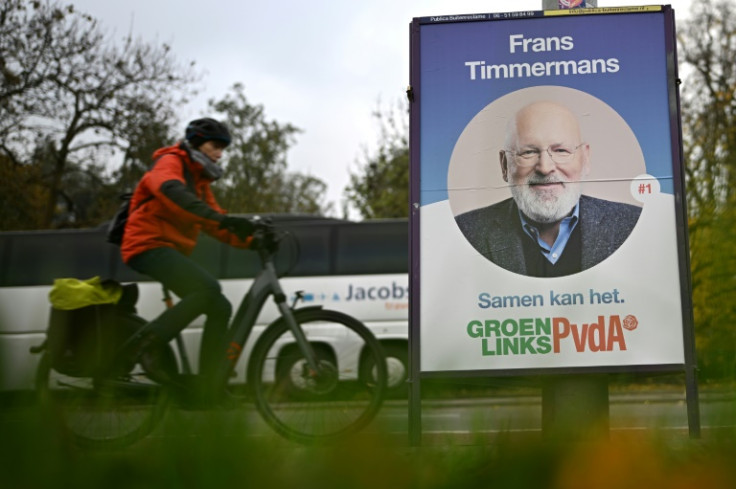Far-Right, Anti-Islam Wilders On Course For Dutch Landslide

The far-right, anti-Islam party of firebrand politician Geert Wilders has won a stunning victory in the Dutch election, partial results showed Wednesday, a political bombshell that will resound in Europe and around the world.
His PVV (Freedom Party) won 35 seats in parliament, a landslide according to initial results and a generally reliable exit poll. A left-wing bloc trailed far behind on 25 seats, with the centre-right party on 24.
If confirmed, Wilders' victory marks a sharp lurch to the right for the EU's fifth-largest economy that will be viewed with trepidation in Brussels -- the PVV has promised a referendum on Dutch membership of the European Union.
Despite his electoral triumph, it is far from clear how Wilders can garner the necessary support for a broad enough coalition to form a stable government.
"I call on the parties... Now we will have to look for agreements with each other," Wilders told cheering supporters.
"The PVV can no longer be ignored," he said.
The leaders of the three other top parties had previously ruled out serving in a PVV-led coalition.
But Pieter Omtzigt, whose New Social Contract party won 20 seats according to the exit poll, appeared to soften his position, saying he was "available", although coalition talks would "not be easy".
Leader of the Green/Labour left-wing bloc, Frans Timmermans, seemed to rule out a coalition, saying: "Now is the time for us to defend democracy."
Immigration was the key topic of the campaign, and Wilders' hardline stance, including closing the borders and deporting illegal immigrants, struck a chord with Dutch voters.
"The Dutch hope that the people can get their country back and that we will ensure that the tsunami of asylum-seekers and immigration is reduced," Wilders said.
Diederick van Wijk from the Clingendael Institute told AFP the Netherlands was now in "uncharted territory" after the "landslide victory" of Wilders.
He said the other parties had made a strategic error by focusing on immigration, playing into the PVV's hands.
Lizette Keyzer, a 60-year-old business manager, said she had "heart palpitations" when the exit poll results came out.
The country "is going in a right-wing direction. We hope that this does not completely become the case", added Keyzer.
Habib el Kaddouri, from the SMN association of Moroccan Dutch, said there was "very great distress and fear" in his community, according to local agency ANP.
Wilders has been compared to Donald Trump, partly for his swept-back dyed hairstyle that resembles the former US president, but also for his rants against immigrants and Muslims.
From calling Moroccans "scum" to holding competitions for cartoons of the Prophet Mohammed, Wilders has built a career from his self-appointed mission to stop an "Islamic invasion" of the West.
During the campaign, he sought to tone down his message, saying he could put some of his more strident views on Islam "in the freezer".
He stressed he would be prime minister for everyone "regardless of their religion, background, sex or whatever", insisting the cost-of-living crisis was a bigger priority.
But as his opponents never tired of pointing out, his PVV manifesto told a different story.
With hallmark Wilders rhetoric, the manifesto said: "Asylum-seekers feast on delightful free cruise-ship buffets while Dutch families have to cut back on groceries."
The programme proposed a ban on Islamic schools, Korans and mosques. Headscarves would be banned from government buildings.
A "binding referendum" would be held on a "Nexit" -- the idea of the Netherlands leaving the EU. The PVV also called for an "immediate halt" to development aid.
On foreign policy, the parallels to Trump were clear. "Netherlands first," trumpeted the manifesto.
Wilders already won plaudits from Hungary's nationalist Prime Minister Viktor Orban, who hailed "winds of change" after the exit poll.
French far-right politician Marine Le Pen also offered her congratulations on Wilders' "spectacular performance" in the election.
Wilders has remained defiant despite brushes with the law and death threats that have meant he has been under constant police protection since 2004.
"I don't regret fighting for freedom," Wilders told AFP in an interview ahead of elections in 2021. "Of course I take a stand. I am under attack, my country is under attack."
He was found guilty of discrimination in 2016 over comments he made against Moroccans living in the Netherlands and has previously likened the Koran to Adolf Hitler's "Mein Kampf", saying both books should be banned.
He was forced to shelve plans for a cartoon competition of the Prophet Mohammed in 2018 after receiving death threats.



© Copyright AFP 2025. All rights reserved.





















